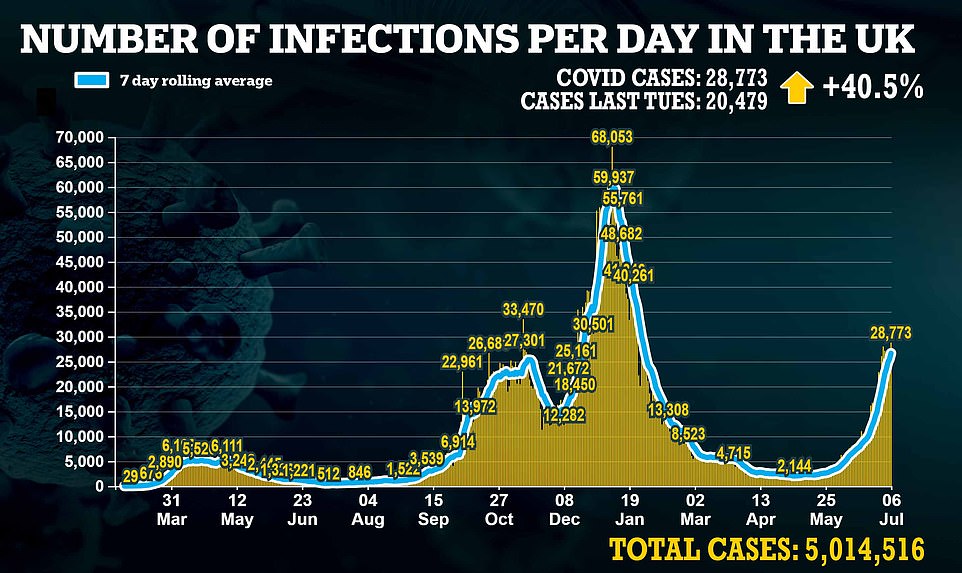
Was a busy day so just now getting to this article about the J&J vaccine potentially performing worse than RNA vaccines against Delta, and how a booster shot might e a good idea.
A thread on why J&J recipients may be experiencing a feeling of déja-vu...
nytimes.com/2021/07/20/hea…
A thread on why J&J recipients may be experiencing a feeling of déja-vu...
nytimes.com/2021/07/20/hea…
I had predicted that, as nAbs raised against original SARSCoV2 by RNA vaccines suffered a similar loss in potency against Delta as against Beta, J&J would have similar efficacy against Delta as against Beta (relative risk ~40% vs nonvaxxed for symptoms, ~18% for severe disease)
(40% relative risk is the same as 60% relative risk reduction which is the "efficacy" number for J&J vs symptomatic disease from Beta. It's 67% vs all strains and 72% vs original strain in the US. Numbers may be off by a few % — working from memory here)
After all, antibodies are antibodies; once made and released by B cells they don't know what vaccine triggered them, if the vaccines all use the same antigen, as they did in the case of RNA vaccines and J&J. So the same hit RNA vax were seeing in nAb potency, we'd expect for J&J.
I thought the 40% relative risk of disease after J&J (compared to non-vaxxed) was high enough to be concerned about, compared to the estimates of 12% RR after Pfizer coming from the UK
medrxiv.org/content/10.110…
medrxiv.org/content/10.110…
As Delta is more contagious replicates to ≥4x higher levels, I'm not sure the 40% relative risk is adequate. Recall these risks are relative to unvaxxed. If unvaxxed are 2x more likely to catch COVID now per exposure, maybe we want our vax to have <20% relative risk, not 40%...
and actually now that CDC asked everyone to go without masks and party indoors and exchange aerosols, the exposures are more frequent and intense than those experienced in the trials that established the 40% RR for Beta
The exact same concerns hold for all vaccines, but J&J starts from the lower baseline of 40% RR (60% efficacy) whereas Pfizer was until recently thought to hold onto 12% RR (88% efficacy) vs Delta in the real world. (We still have no clue about J&J vs Delta in the real world)
This is why others and I have suggested that it would be prudent to give a booster to J&J recipients ahead of Delta
https://twitter.com/michaelzlin/status/1407059999101181955
Anyway earlier this month we already saw that, sure enough the hit in potency of nAbs produced by J&J against Delta was similar to that against Beta, in two studies from J&J scientists and the Barouch lab
biorxiv.org/content/10.110…
biorxiv.org/content/10.110…
Like me, J&J extrapolated the nAb findings to argue for expected efficacy on Delta similar to previous variants. But where I saw this as a predictor of suboptimal protection, J&J saw it as good enough and most of the media just went ahead and echoed that.
nytimes.com/2021/07/01/hea…
nytimes.com/2021/07/01/hea…
However J&J and most of the media failed to address the larger concern above about whether 60% efficacy vs symptoms and 82% vs severe disease (yet to be proven) is really adequate against the higher infectivity and severity of Delta
So how about today's biorxiv paper, what does it say? It says two things we already knew (which I'll get to next). But they see the glass as half-empty, suggesting "benefit of a 2nd immunization... to increase protection against the variants."
biorxiv.org/content/10.110…
biorxiv.org/content/10.110…
What they showed itself is not surprising for those paying attention to the literature rather than CDC. Delta causes antibodies produced by J&J to be 7x less potent (below). This is in line with the hit taken by other vaccines, e.g. in the Lancet paper hubs.li/H0PzQ7b0 

They also showed that neutralizing antibody activity on Delta was 10x lower in J&J vaccine recipients vs RNA recipients. This is also unsurprising because nAb activity against original strain was also 10x lower after J&J than after RNA vaccines, e.g.
nature.com/articles/s4159…
nature.com/articles/s4159…

That is, we already knew J&J was 10x weaker in antibody production than RNA vaccines, and that was indeed one of the explanations for why J&J protection was 67% vs 95% against original SARSCoV2. From that nature.com/articles/s4159… paper (purple annotation mine): 

The conclusion of today’s biorxiv paper's authors is that booster shots should be considered for J&J receipients because of Delta. Yes, and we've always had the evidence to recommend them, but it's not because J&J is losing its activity worse than RNA vaccines on Delta.
J&J even seems to retain a bigger percent of its original activity on Delta than RNA vaccines are retaining theirs. But the reason to consider boosters for J&J recipients is that even that retained amount of efficacy is worse than the retained efficacy of the RNA vaccines.
The best evidence comes from J&J themselves, who tested 2 vs 1 dose, and found 2 doses to produce ~3x more antibodies in the Phase 2 trial. That's with the known issue of clearance of the second dose by antibodies made against the Ad carrier too. From nejm.org/doi/full/10.10… 

And as the article says, we know from work in the UK and Europe that a single RNA boost of the AZ Ad vaccine also boosts Ab levels to that of 2x RNA. Finally there are hundreds of people on social media alone describing getting RNA boosters, so far with no safety signals reported
So today's news is nothing surprising, but it's noteworthy in bringing to light that Delta is a reason to see the glass as half-empty. But it seems that CDC is sticking to the idea that severe disease is all that matters, in which case a booster would make only a small difference
I should say J&J *may* even retain a bigger percent of its original activity on Delta than RNA vaccines are retaining of theirs. We don't know yet.
• • •
Missing some Tweet in this thread? You can try to
force a refresh








